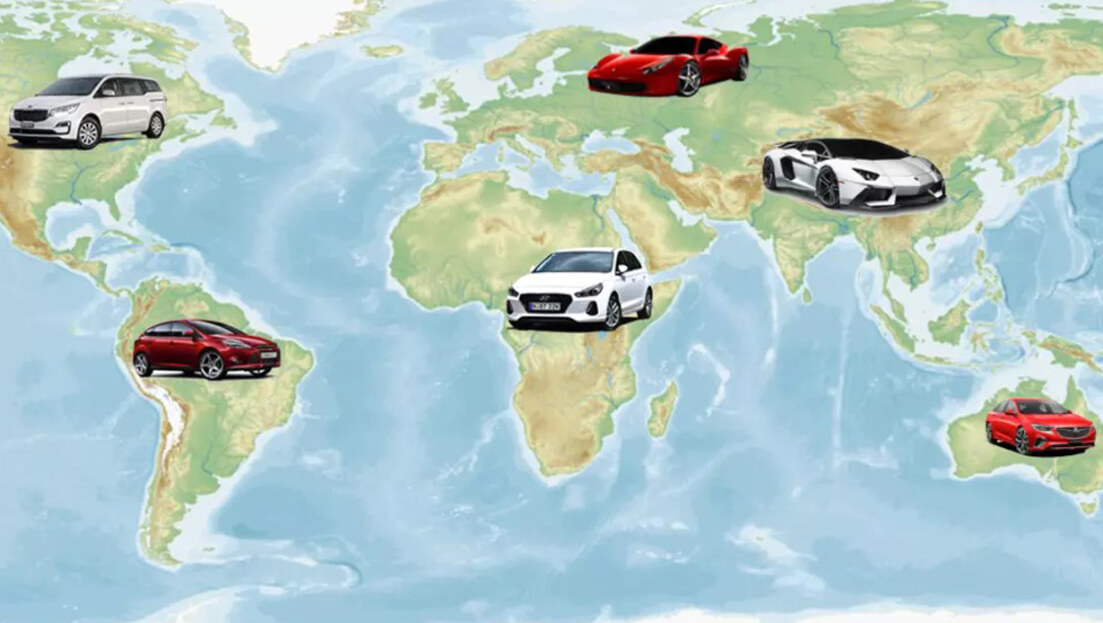How many cars are there in the world? It depends on who you ask. If you just want to know how many cars are sold every year, or how many new car registrations there are, then those numbers are easy to find.
You might hear people say that there are about 1 billion vehicles on the road at any given time, though this number can vary depending on who you ask and what definition of car they use.
This article will answer some of the most common questions about cars in the world today and give you some great resources if you want to learn more about them.
Estimated Number of Passenger Vehicles

Based on data from the Organisation Internationale des Constructeurs d’Automobiles, there were over 1.15 billion cars produced in 2013.
Estimated Number of Commercial Vehicles
There are an estimated 1.5 million commercial vehicles around today and they account for 15 percent of all vehicle traffic globally. Yet these vehicles only account for 7 percent of traffic fatalities.
In contrast, light vehicles (i.e., passenger cars) account for over 80 percent of global traffic fatalities, despite making up less than half of all vehicle traffic worldwide (49% to be exact).
It should come as no surprise that some countries have significantly more commercial traffic than others: in Canada, commercial vehicles make up 16% of all vehicle kilometers traveled but in Japan, that figure is just 4%.
Share By Region
No single car brand or model can claim to be dominant in all areas of the world. Here’s a quick breakdown of how many cars are there in the world by region:
- South America – 14.6 million vehicles
- Europe – 65.5 million vehicles
- Asia – 194.7 million vehicles
- Africa/ Middle East – 55.3 million vehicles
- North America – 230.1 million vehicles
- Oceania – 983,000 vehicles
Source: OECD-FAO, IFAD, and UN Comtrade database (2010)
Read also: Mazda CX-50 Built For North America
Total Vehicles Worldwide
Over 1 billion. The number of vehicles worldwide has been growing exponentially for decades, largely due to increased manufacturing capabilities and changes in infrastructure.
In 1900, there were about 15 million cars on Earth; by 2000, that number was up to 750 million. Experts believe another 500 million have been added since then, putting us well past one billion total vehicles on Earth. That’s a lot of tires—and a lot of exhaust fumes!
Share By Country
I thought my mind was going to be blown. I thought, ‘Oh my gosh, there are so many cars everywhere.’ And that’s what we found. How many cars are there in the world?
The number of cars on Earth has doubled every 10 years since 1950. In 2000 alone, 85 million more cars were added to global roads.
Today, a car is produced every ten seconds. In 2014 alone, 93 million new vehicles hit our roads and highways.
Considering that there are approximately 7 billion people on Earth, it’s safe to say that most of us live within driving distance of at least one other car—and as modern trends suggest, that number is only going up: More than 1 billion additional people will be joining us by 2035 (PDF).
United States
The United States is one of the largest car markets in the world and it’s home to some of biggest automakers on earth.
According to CNN Money, there are around 255 million registered vehicles in America; here’s a breakdown of how many cars are there in the world there are by state.
All data comes from AAA and Automotive News. Alabama: 5,224,000 Alaska: 708,500 Arizona: 4,009,000 Arkansas: 2,801,500 California: 21,844
Brazil
1.4 million cars for 192 million people on the streets of Manila. For every five people in Brazil, there is a car, according to research company IBGE (Instituto Brasileiro de Geografia e Estatística).
In other words, there are one million cars in Brazil. That makes Brazil one of only two countries in the world with over one million cars (the other is China). Every day on average there are 220 new registrations.
China
The world’s largest market for new cars, China is also its most polluted. Each year, millions of new vehicles are added to its roads and their number continues to grow rapidly.
In 2016 alone, 3.2 million passenger cars were registered in China—the most of any country around the world—and experts predict it will surpass 30 million by 2020.
The Chinese government is keenly aware of its country’s worsening air quality and has made moves to curb emissions including rolling out tough anti-pollution laws that punish carmakers for selling vehicles that fail stringent emissions standards.
To keep up with the growing demand for better-performing models that burn less fuel, several domestic brands have unveiled electric vehicles (EVs) with plans to launch more models soon.
Germany
One of Germany’s biggest automakers, Mercedes-Benz (which is owned by Daimler), sold over 2.1 million vehicles globally in 2017.
That figure makes Mercedes-Benz one of the leading producers of cars worldwide. If we were to narrow it down to just passenger cars, though, its yearly sales would surpass five million—which puts it at about a third of what we know to be true for total global vehicle production.
According to several studies on new car registrations, about 15 million new passenger cars are sold annually around the world, some sources put that number closer to 17 million.
Conclusion
The world has an estimated 1 billion vehicles on its roads, but that figure is expected to swell to 2 billion by 2035.
China and India are leading growth, with Indian car ownership expected to triple by 2035. Meanwhile, China’s fleet will almost double.
In Europe and North America, car per capita numbers have reached their peak. These countries still account for most of the global car ownership (55%), yet they have much slower growth rates than Asia,
Latin America, and Africa together only account for 30% of vehicles globally but will collectively see over a 90% rise in car ownership over the next two decades.






